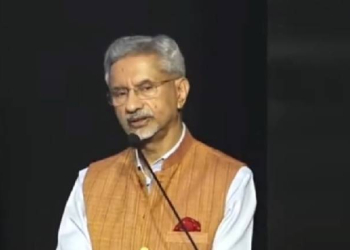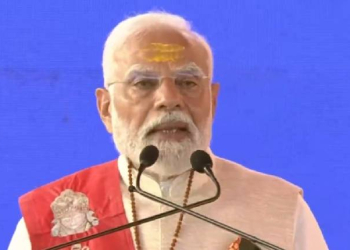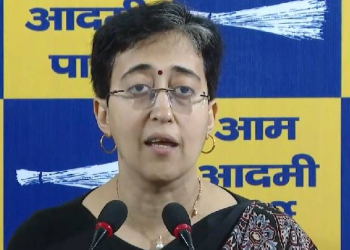New Delhi: The Supreme Court has issued notice to the Centre and the Ministry of Law and Justice on a plea challenging the vires of provisions of limitation prescribed under Sections 14, 15 and 16 of the National Green Tribunal Act, 2010.
A bench comprising Justices D.Y. Chandrachud and Surya Kant said: “Issue notice, returnable on July 2022.”
The petitioners were represented by senior advocate Sanjay Parekh, and the petition was filed through advocate Abhimanue Shrestha. The petitioners are agriculturists having their agricultural land in Talli village in Saurashtra region of Gujarat.
The plea contended that the top court took cognisance of deterioration of the environment and passed various directions for remediation and restoration of the environment.
The plea submitted that it is in this background that the provisions of limitation prescribed under the National Green Tribunal Act, 2010, are required to be considered.
The plea urged the top court to either strike down or read down the impugned provisions. It argued that the limitation clauses also allow arbitrariness and unjustness in connection with environmental issues and, therefore, violate Article 14 of the Constitution.
“The limitation clauses in Sections 14, 15 and 16 of the Act cause unconstitutional hindrance in realisation of Article 21 of the Constitution in relation to nature and environment to its full extent. The gap in the remedies available under Articles 32 and 226 of the Constitution, as against what is available in the NGT Act, creates a situation which becomes unexplainable in the context of environment matters,” read the plea.
The plea said that in cases where fraud is played by the project proponent, the plea is not entertained by the tribunal/court because of the law of limitation, in spite of the well-established principle that fraud vitiates all the actions and the principles of limitation, delay and laches do not apply.
It added, “In certain other statutes, discretion has been given to the court/tribunal to decide the question of limitation even after the initial period within which the complaint/petition should have been instituted, had expired, like in the Consumer Protection Act. But as far as the infringement of the fundamental rights are concerned, no such impediment of limitation can be prescribed.”
(IANS)


















